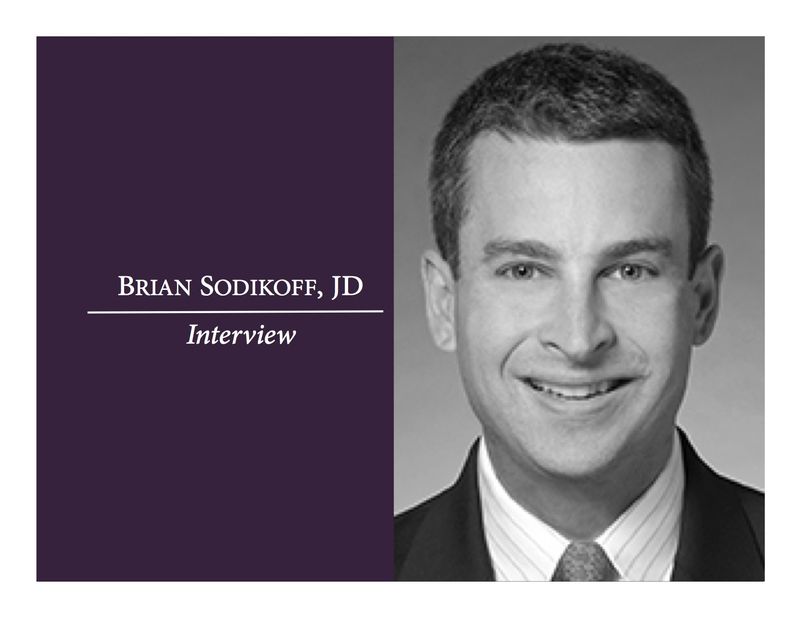 Attorney Brian Sodikoff, Partner at Katten, Muchin, Rosenman, LLP, and DePaul graduate, Class of 2003, shares the key skills he has learned during his career, what has surprised him about litigation, and his impression of Chicago’s young entrepreneurs and their contribution to the health care field.
Attorney Brian Sodikoff, Partner at Katten, Muchin, Rosenman, LLP, and DePaul graduate, Class of 2003, shares the key skills he has learned during his career, what has surprised him about litigation, and his impression of Chicago’s young entrepreneurs and their contribution to the health care field.During law school, Brian externed for Judge Guzman in the Northern District of Illinois and clerked for Wallenstein & Wagner, which was later absorbed. He was also a member of DePaul Law Review. After graduation, he worked for Welsh & Katz, a boutique IP firm. He has worked for Katten since 2008. As a registered patent attorney, Brian litigates patents on behalf of companies that produce generic pharmaceuticals. He also counsels clients on issues dealing with trademark, copyright, and trade secrets. Brian recently co-authored an article on the complexities of litigating enantiomer patents, entitled “Enantiomer Patents: Innovative or Obvious?”
Brian has learned during his career that a successful attorney understands the business intricacies behind a case. He feels strongly that in order to effectively advise and represent your client from a complaint through settlement negotiations, you must learn and acknowledge the business considerations. He would also recommend young lawyers be aware of the value of technical experts. When it comes to trial, experts carry a lot of weight, especially in litigation where technical issues and patent law overlap.
What has surprised Brian in career? Trials. He describes them as an “alternate reality” that requires you to adapt to a hypothetical world. He remembers a quote from A Few Good Men that characterizes his view of litigation: “It doesn’t matter what I believe; it only matters what I can prove.” Evidence is crucial.
Representing a variety of pharmaceutical companies with different fact situations means it is important to be malleable. Some arguments may be stronger than others. In general, legal counsel for brand companies argues the generic would not exist without the brand, whereas counsel for generics compel the brands to continuously innovate. What matters in the end, Brian concludes, is that you rightfully interpret the law while advocating for your client.
Brian and his team have worked with young entrepreneurs through 1871 and at local universities like the University of Chicago. He is excited about the future development in the health care field, including Matter, which is a new hub for health care startups modeled after 1871. Brian believes the combination of new entrepreneurs with Chicago’s strong base of hospitals, pharmaceutical companies, and the medical and information technology industries will establish Chicago as a new hub for medical innovation. He enjoys this side of his work because both sides mutually depend on the other, noting, “when they’re successful, we’re successful.”
Brian lives in Chicago with his wife and two children, Lila and Teddy. They are expecting their third child in September.